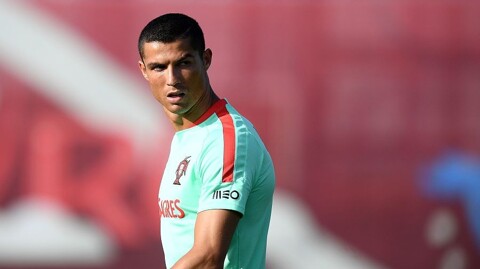What exactly did Cristiano Ronaldo do wrong? How does it differ from Messi?
Everywhere you look, you will see the same thing – Cristiano Ronaldo accused of tax and says he wants to leave Real Madrid. While the hullabaloo surrounding that latest announcement promises to capture the spotlight this summer, you may be wondering… what exactly did the Portuguese megastar do wrong?
 The Cristiano Ronaldo Tax CaseCristiano Ronaldo’s issues stem entirely from the issue of image rights, and the revenues he’s accrued from them. There is a grey area here because the Spanish authorities have changed their nation’s Image Rights legislation (an already complicated set of red-tape) suddenly and without warning.
The Cristiano Ronaldo Tax CaseCristiano Ronaldo’s issues stem entirely from the issue of image rights, and the revenues he’s accrued from them. There is a grey area here because the Spanish authorities have changed their nation’s Image Rights legislation (an already complicated set of red-tape) suddenly and without warning.
Let me explain:
When Ronaldo joined Real Madrid in 2009, the tax laws were ‘generous’ and favourable to foreign workers earning massive amounts of money in Spain – any such person would only have to declare money that he/she has earned in Spain and this is where the grey area comes in. How do you decide what percentage of the image rights should have been declared as having been earned in Spain and what percentage outside?
Ronaldo’s spokesmen, Jorge Mendes’ Gestifute, claim that any commercial deals done with the likes of Nike, Coca-Cola, Emirates, Castrol, Herbalife and Tag Heuer (his major sponsors) are all global, i.e. overseas businesses and that he was well within his rights not to declare these as income. Income coming from these sources amounts to 90% of his image rights revenue and this need not be declared.
This is where the Spanish public prosecutor’s office comes in. The government agency has accused Ronaldo of ceding his image rights to a shell company in the British Virgin Isles (akin to using a binami) and then further defrauding the taxman by using it to channel these funds to two companies in Ireland.
This had been the norm for big foreign players for a long time but in 2014, the Government initiated their investigation of Ronaldo and other players. And around that time, the Portuguese player paid out an additional 6 million euros to put his affairs in order in the changing environment. This payment was made on the basis that 80% (and not 90%) of his image rights revenues accrue from outside Spain and it was the resulting tax coming out of the remaining 20%
The public prosecutor, however, has used a different method to calculate the percentage of image rights accruing from Spain and overseas and is claiming that the additional 6 million paid three years ago is not enough.
It’s this difference in interpretation that has put Ronaldo on the doorstep of court proceedings. The case is, in fact, eerily similar to what Lionel Messi faced.
The Lionel Messi Tax Case
Lionel Messi was accused, and found guilty of, defrauding the Spanish government to the tune of 4.2 million Euros by doing pretty much the same thing Ronaldo’s accused of doing – using tax havens and shell companies to shield from declaring his full income. As the complaint stated the Argentine “obtained significant revenue derived from the transfer to third parties of his image rights, income which should have been taxed”. Messi’s defence argued the case by saying that the Argentine is only a football player and was simply signing on ‘complicated’ papers that his people provided him.
The one major difference here is that the Spanish public prosecutor cleared Messi of any wrong-doing saying that the Barcelona megastar was not “fully aware of his father’s unlawful activities” but the State’s Attorney stepped in to put him back in the spotlight stating that even if he had not set up his business contracts himself, Messi “couldn’t have ignored” the fact that a huge chunk of his income was being generated via offshore companies.
As anyone who’s studied even the basics of law knows – “Ignorantia juris non excusat” or “ignorance of law excuses no one” – and by that principle, Messi was just as culpable as his father Jorge. The judge later went on to find the Messis guilty and sentenced them to 21 months in jail… a sentence neither had to serve as Spanish civil law excuses anyone getting less than 24 months any jail time and replaces it with monetary penalties. law excuses no one” – and by that principle, Messi was just as culpable as his father Jorge. The judge later went on to find the Messis guilty and sentenced them to 21 months in jail… a sentence neither had to serve as Spanish civil law excuses anyone getting less than 24 months any jail time and replaces it with monetary penalties.
The Spanish Supreme Court recently upheld the sentence.
What does the future hold for Ronaldo?
If the case goes to court, it is likely that the prosecution will win the case and not only will Ronaldo have to pay back approx. 13 million Euros to the exchequer but also have to face criminal proceedings a la Messi. While, like his great rival, it is unlikely that he will have to serve any time it will be a body blow to his “squeaky clean” reputation.
Ronaldo’s recent outburst and the declaration that he will leave Madrid seems to be one that emanated from anger as much as anything else – anger at his club not doing enough to defend the accusations against him. If he does leave Madrid, there are few options open in front of him – Manchester United and Paris St. Germain appear the only two clubs realistically capable of offering him the same chance of winning trophies, making his humongous wages (400,000 Euros a week), and coming up with the 180 million Euros that Madrid will likely ask for him. Even at 32, though, he would be a significant coup for any club that does manage to meet these demands.
Florentino Perez and co. will hope that Ronaldo reconsiders after calming down and that the support they extend during the Prosecutor’s investigation would be enough to convince him that the club are there for him.
www.sojworld.com (c) June 18, 2018



